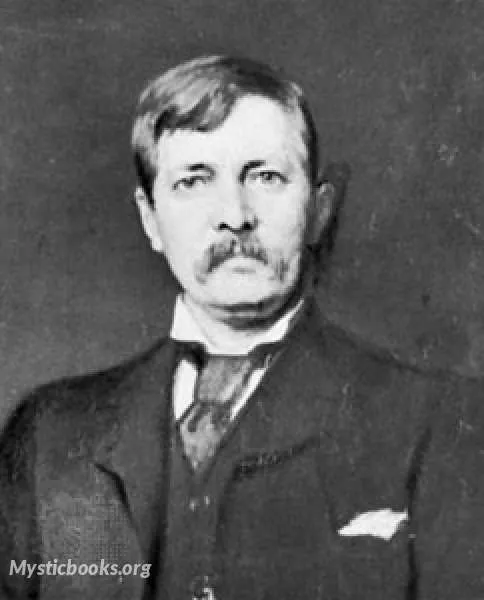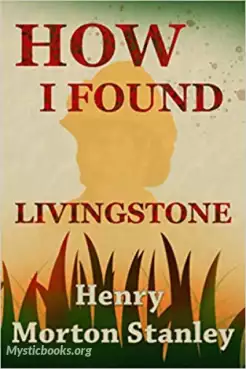
Timeline
Title
Country/Nationality
Sir Henry Morton Stanley
Sir Henry Morton Stanley journalist, explorer, soldier, colonial administrator, author and politician who was famous for his exploration of central Africa and his search for missionary and explorer David Livingstone, whom he later claimed to have greeted with the now-famous line: "Dr. Livingstone, I presume?". He is mainly known for his search for the source of the Nile, work he undertook as an agent of King Leopold II of Belgium, which enabled the occupation of the Congo Basin region, and for his command of the Emin Pasha Relief Expedition. He was knighted in 1897.
Stanley’s parents, John Rowlands and Elizabeth Parry, gave birth to him out of wedlock. He grew up partly in the charge of reluctant relatives, partly in St. Asaph Workhouse. Modern research has shown his own account of ill treatment and a dramatic escape to be almost entirely a fantasy. There seem to have been no extraordinary events attending his departure from the workhouse at age 15, after receiving a reasonable education. The humiliations of institutional life and his mother’s consistent neglect did, however, leave deep marks on his personality. After an interlude of dependence on relatives, he sailed from Liverpool as a cabin boy and landed at New Orleans in 1859.
There Rowlands was befriended by a merchant, Henry Hope Stanley, whose first and last names the boy adopted in an apparent effort to make a fresh start in life with a new identity; “Morton” was added later. Passages in Stanley’s Autobiography concerning this period contain serious misstatements, particularly in regard to the movements of Mr. and Mrs. Henry Hope Stanley and the degree of intimacy that existed between them and young Rowlands. For some years Stanley led a roving life, as a soldier in the American Civil War, a seaman on merchant ships and in the U.S. Navy, and a journalist in the early days of frontier expansion; he even managed a trip to Turkey, recorded in My Early Travels and Adventures in America and Asia (1895).
In 1867 Stanley offered his services to James Gordon Bennett of the New York Herald as a special correspondent with the British expeditionary force sent against Tewodros II of Ethiopia, and Stanley was the first to report the fall of Magdala in 1868. An assignment to report on the Spanish Revolution followed, and in 1869 he received instructions to undertake a roving commission in the Middle East, which was to include the relief of Dr. David Livingstone, of whom little had been heard since his departure for Africa in 1866 to search for the source of the Nile.
On January 6, 1871, Stanley reached Zanzibar, the starting point for expeditions to the interior, and, intent on a scoop, left on March 21 without disclosing his intentions. His secretive conduct caused much offense to the authorities, especially to Sir John Kirk, the British consul, who had been having difficulty in making contact with Livingstone. Leading a well-equipped caravan and backed by American money, Stanley forced his way through country disturbed by fighting and stricken by sickness to Ujiji on Lake Tanganyika, Livingstone’s last known port of call. There he found the old hero, ill and short of supplies, and greeted him with the famous words, “Dr. Livingstone, I presume?” (The exact date of their meeting is unclear, as both men recorded different dates in their journals; according to Stanley, they met on November 10, 1871, while Livingstone’s journal suggests that the event occurred sometime between October 24 and 28.)
Page Break
When Livingstone died in 1873, Stanley resolved to take up the exploration of Africa where he had left off. The problem of the Nile sources and the nature of the central African lakes had been only partly solved by earlier explorers. Stanley secured financial backing from the New York Herald and the Daily Telegraph of London for an expedition to pursue the quest, and the caravan left Zanzibar on November 12, 1874, heading for Lake Victoria. His visit to King Mutesa I of Buganda led to the admission of Christian missionaries to the area in 1877 and to the eventual establishment of a British protectorate in Uganda. Circumnavigating Lake Victoria, Stanley confirmed the explorer John H. Speke’s estimate of its size and importance. Skirmishes with suspicious tribespeople on the lakeshore, which resulted in a number of casualties, gave rise in England to criticism of this new kind of traveler with his journalist’s outlook and forceful methods. Lake Tanganyika was next explored and found to have no connection with the Nile system. Stanley and his men pressed on west to the Lualaba River (the very river that Livingstone had hoped was the Nile but that proved to be the headstream of the Congo). There they joined forces with the Arab trader Tippu Tib, who accompanied them for a few laps downriver, then left Stanley to fight his way first to Stanley Pool (now Malebo Pool) and then (partly overland) down to the great cataracts he named Livingstone Falls. Stanley and his men reached the sea on August 12, 1877, after an epic journey described in Through the Dark Continent (1878).
Stanley married Dorothy Tennant on July 12, 1890, and they adopted a son, Denzil. Stanley was renaturalized a British subject in 1892 (he had become a U.S. citizen on May 15, 1885) and sat in Parliament as Liberal Unionist for North Lambeth from 1895 to 1900. In 1897 he visited South Africa and wrote Through South Africa (1898). He was made a Knight Grand Cross of the Order of the Bath in 1899, becoming Sir Henry Morton Stanley. The remaining years before his death were spent mainly at Furze Hill near Pirbright, Surrey, a small estate that he bought in 1898.
Books by Sir Henry Morton Stanley

How I Found Livingstone
Sir Henry Morton Stanley is famously quoted for saying "Dr Livingstone, i Presume?". Born in Wales, he migrated over to the United States at the age of 18, he eventually became an overseas correspondent for the New York Herald. In 1869 Stanley was to...